Speeches Shim
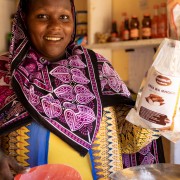
Dependence on old farming techniques limited 32-year-old Pili Kashinje’s potential as a farmer. She expected farming to yield higher results and quicker returns, but this was not the case when she first began. Not until she joined Feed the Future Tanzania Advancing Youth which invests in entrepreneurship and savings and lending training for youth in Zanzibar. Pili not only grew as a farmer; she transformed her love for farming and agriculture with an acquired business approach to a profitable enterprise.
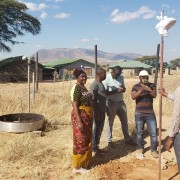
As demand for water rises and the risk from climate variability increases in Tanzania, efficient water resource management has become critical to guaranteeing sustainable use of these vital resources. Decision making for sustainable management of water resources is dependent on access to accurate and reliable weather, climate data and its impacts on water resources.
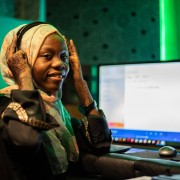
In an increasingly interconnected 21st century society, imparting digital skills on youth becomes a critical skill. The advancement of mobile phones and the spread of internet connections globally pushed Feed the Future Tanzania Advancing Youth to innovate and partner with USAID Boresha Habari, a civil society and media strengthening activity. Together they offered citizen journalism and digital storytelling training to rural youth. Driven by the opportunity to push for meaningful change, and eager to use her skills to better her community, 18-year-old Khayyam Mustafa from Zanzibar enrolled in the training. Despite being the youngest participant in her cohort, Khayyam’s charisma and intelligence endeared her to being selected.
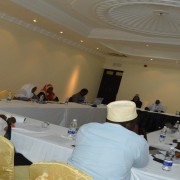
In 2017, the European Union funded the Government of Zanzibar to streamline the operations of non-governmental organizations (NGOs) and introduce an online registration process. Before this, NGO Registration was housed in the Ministry of Trade and Industry, while NGO Coordination was housed in the Ministry of Constitution and Legal Affairs. Through this funding, the government merged the two functions and introduced the Registrar of NGOs under the President’s Office. As a result of this change, NGOs needed to re-register with the Registrar’s office; and the Registrar directed NGOs to re-register through an online system or face de-registration. Unfortunately, when the window of re-registration closed in June 2019, only a small number of NGOs complied with the requirement. Although the government re-opened the re-registration to July 2020, re-registration continued at a very low rate and the responsible Minister and the Registrar issued a series of de-registration threats against NGOs.
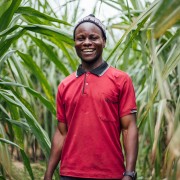
31-year-old Abel Mwakatima is fondly referred to as a “man of the people” in his community in Rungwe, Mbeya region. His qualities of integrity and charisma endear him to his community. A natural leader, Abel however, lacked the skills to drive and further his aspirations in the community. In June 2018, Abel was one of over 20 youth selected by Advancing Youth to attend a one-week leadership training. Thereafter, he was selected to become an Advancing Youth Advisory Council member at district level. Following the training, Abel was appointed by the Rungwe community to become a secretary for his ward, Kiwila. He leads a seven-person “baraza” which mediates land and marriage cases on Mondays and Thursdays each week.

Comment
Make a general inquiry or suggest an improvement.